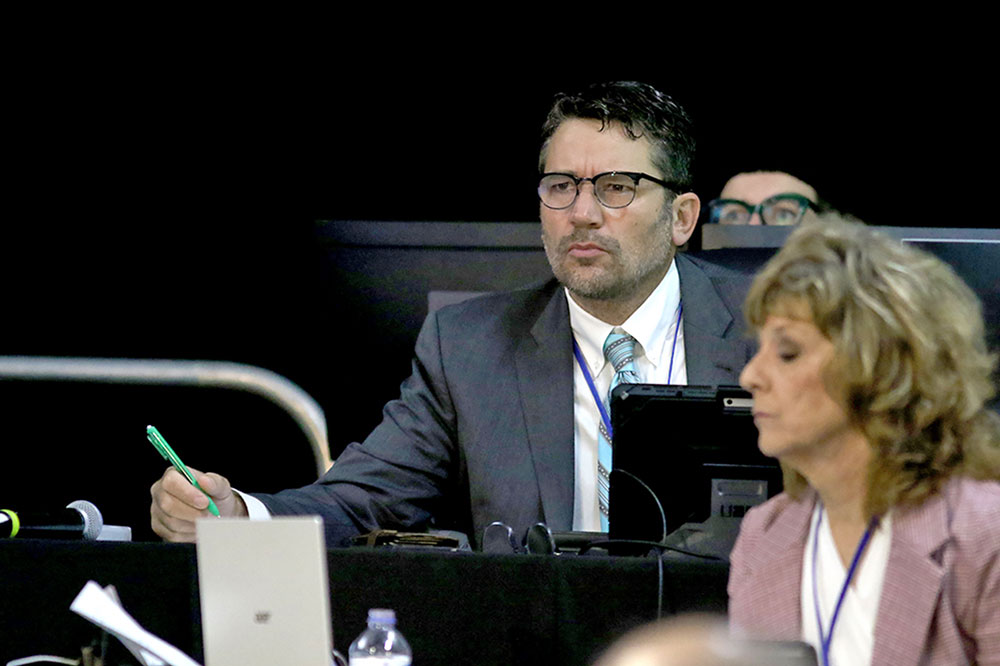FOIA at 50: Has the Sunshine Law’s promise been fulfilled?
FOIA at 50: Has the Sunshine Law’s promise been fulfilled?
This is a prepared statement by Sen. Chuck Grassley for a hearing on Tuesday, July 12:
Fifty years ago, President Lyndon Johnson signed into law the Freedom of Information Act, or FOIA. For the first time in our nation’s history, individuals were given the right to access the federal government’s records. This marked a key step toward ensuring a more open and accountable government. The Supreme Court perhaps said it best: “The basic purpose of FOIA is to ensure an informed citizenry, vital to the functioning of a democratic society, needed to check against corruption and to hold the governors accountable to the governed.”
Before FOIA, folks had to justify to the government their need for documents or information. After FOIA, the government has to justify its refusal to release such information to the public.
Before FOIA, government could largely rest assured that mismanagement would remain hidden behind the curtains. After FOIA, it’s the right of the People to know what their government is up to.
Put simply, FOIA was created to ensure transparency. And, as I’ve said many times over, transparency yields accountability.
So, today’s hearing is a celebration. It’s an opportunity to reflect upon the good that’s come from FOIA. And it’s a chance to reiterate why FOIA should matter to all Americans.
Without FOIA, countless stories of government waste, fraud, and abuse would’ve simply remained in the dark. Today, we’ll hear more about what FOIA has brought to light.
This committee has a long and bipartisan history of protecting the public’s right to know and ensuring the government’s compliance with FOIA. Most recently, this strong bipartisan work helped to accomplish the enactment of the FOIA Improvement Act, a bill that makes some of the most substantial improvements to FOIA in its 50 years.
I was proud to be a cosponsor of this bill, and to work closely with Senator Cornyn and Ranking Member Leahy who’ve been FOIA leaders in the Senate for years. It’s a strong step toward greater transparency. But legislative reforms are only part of the story.
Over the years, the government has continued to find ways to undermine citizens’ right to know under FOIA. Where the default setting should be transparency, we still find a culture of obstruction and reflexive secrecy. This has been the case under both Democrat and Republican administrations.
President Obama has called his administration the most transparent in history. In fact, on Saturday at the NATO summit press conference, the President said “We’re processing more Freedom of Information Act requests and doing so faster than ever before.”
But the facts simply don’t measure up.
According to the Associated Press, the Obama Administration set a new record in 2015 for failing to fulfill FOIA requests. And under President Obama, the number of FOIA lawsuits in federal courts has reached record highs.
Under President Obama, White House review of politically sensitive FOIA requests is an official policy.
More than one of his top officials used personal or alias email accounts to conduct official business, undermining FOIA’s reach and public accountability. In fact, according to the State Department Inspector General, two State Department employees independently raised concerns in 2010 that former Secretary of State Clinton’s private email usage was interfering with federal record keeping laws. Between the Inspector General and the FBI’s vague findings, there’s a clear pattern of avoidance of public accountability.
In the previous Congress, members worked tirelessly in a bipartisan and bicameral manner to improve citizens’ access to government information. But it was the Obama Administration that lobbied aggressively behind the scenes to derail those efforts.
And those who work to bring the news to the American people have found themselves up against an administration seemingly intent on a delay-and-deny strategy for FOIA.
Earlier this year, the Des Moines Register published an editorial describing how “In the Obama Administration, federal agencies that supposedly work for the people have repeatedly shown themselves to be flat-out unwilling to comply with the most basic requirements of the Freedom of Information Act.”
According to The Register, “Obama’s penchant for secrecy is almost unparalleled in recent history.”
But we’re not here today just to look back. We’re here to look forward and to ask what can be done to best ensure a government culture of openness for FOIA’s next 50 years.
Of course, we should bear in mind that a new administration will soon be moving in. So it’s important to ask how we can work to secure a commitment to transparency from day one.
Today, we’ll hear about the benefits of more proactive disclosure by agencies. By releasing information before it’s requested, agencies could go a long way towards reducing delays and improving transparency.
And we’ll hear about the value of improved communication between agencies and requesters, and the benefits of resolving FOIA disputes long before litigation.
Sen. Chuck Grassley
Statement









Social Share